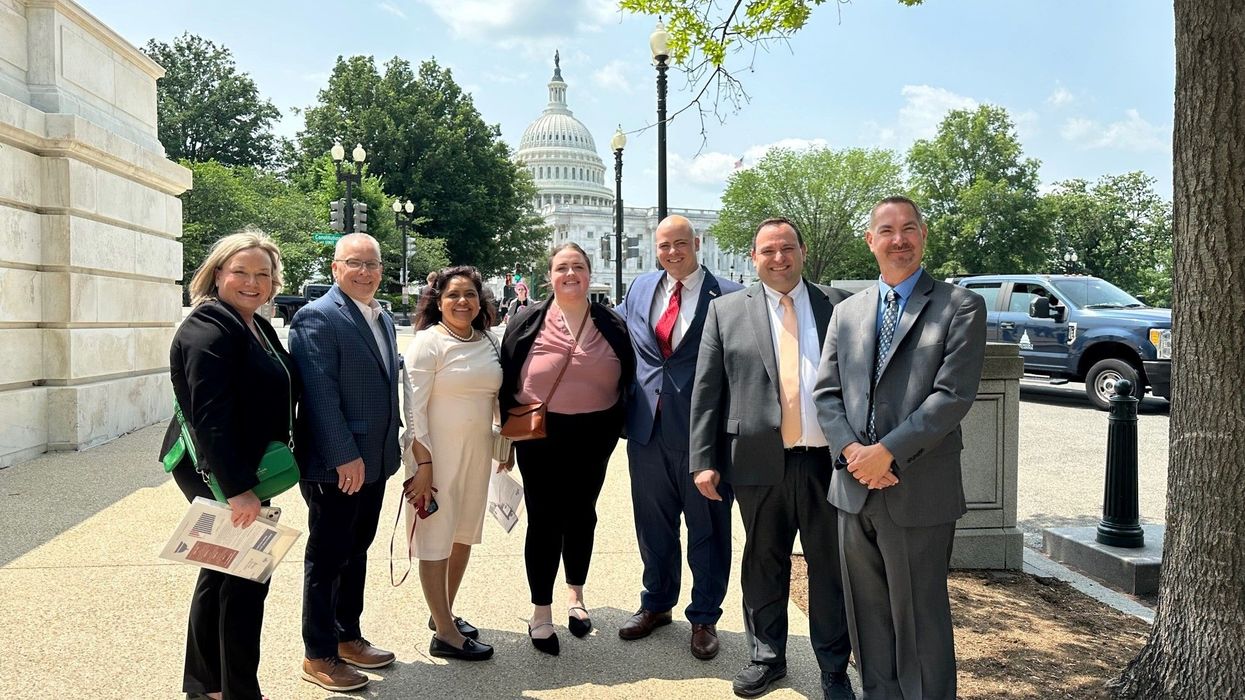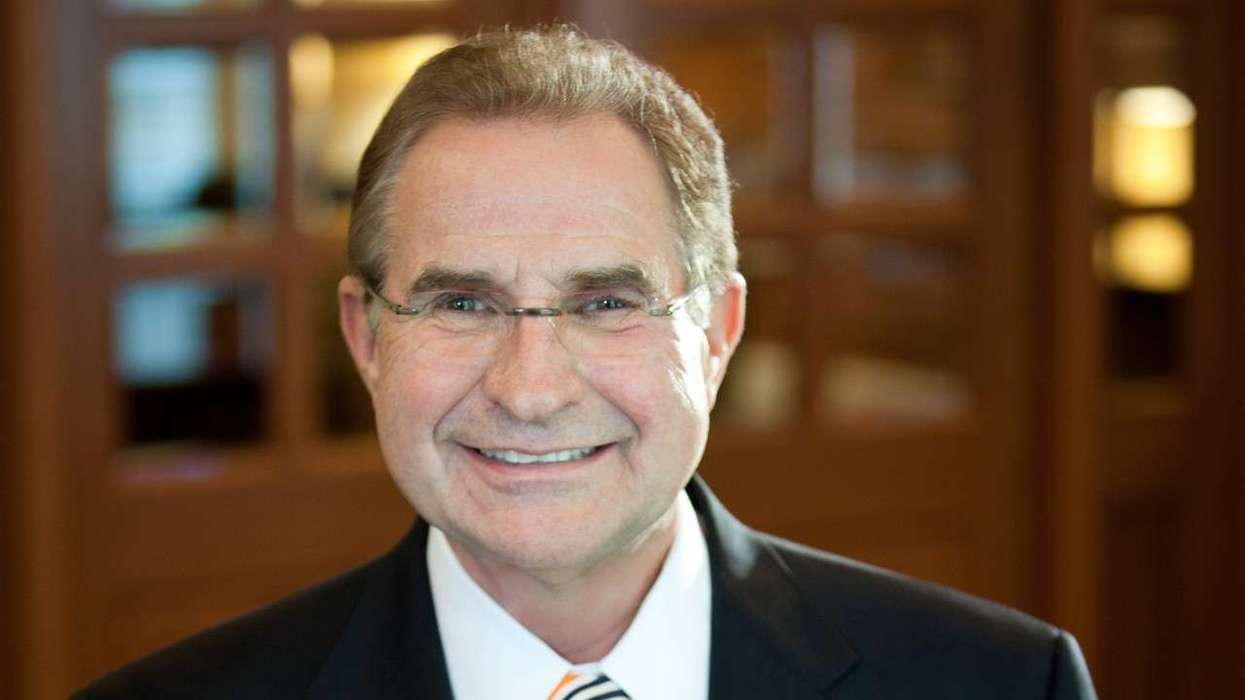HOTELS SUPPORT 8.3 MILLION American jobs, which is equivalent to nearly one in 25 U.S. jobs, according to an economic analysis released by the American Hotel & Lodging Association and Oxford Economics. At the same time, AHLA members recently held an event to lobby Congress in support of proposed laws that would help grow the industry’s workforce.
The study includes a breakdown of the hotel industry’s economic impact in every state and congressional district. Meanwhile, the federal laws AHLA support would open up immigration to allow more workers into the country and would define joint employers.
Hotels as job generators
According to the survey, hotel guests spent a total of more than $691 billion on lodging, transportation, food and beverage, retail and other expenses in 2022 alone.
“For each $100 of spending on lodging, hotel guests spent another $220 during their trip. Hotels paid employees more than $104 billion in wages, salaries, and other compensation, and supported $463 billion in total wages, salaries, and other compensation. Hotels directly generated $72.4 billion in federal, state, and local tax revenue and supported nearly $211.2 billion in total federal, state, and local tax revenue,” the study said.
The top five states for hotel guest spending included Florida, New York, Nevada and Texas, while the top five states in 2022 for hotel wages, salaries, and compensation were California, Nevada, Florida, New York and Texas. The top five states in 2022 for hotel-generated federal, state, and local tax revenue were California, Nevada, Florida, New York, Texas, the study found.
The survey said this hotel-related economic activity is resulting in unprecedented career opportunities for current and prospective hotel employees.
“As of March, national average hotel wages were among the highest ever at more than $23 per hour,” it said. “Since the pandemic, average hotel wages have increased faster than average wages throughout the general economy. And hotel benefits and flexibility are better than ever.”
“Hotels are investing in our workforce to create good jobs that power local economies, and this analysis is proof of that,” said Chip Rogers, AHLA president and CEO. “To continue supporting millions of good-paying jobs and generating billions in tax revenue in communities across the nation, hotels need to hire more people. The good news is that there’s never been a better time to build a lifelong hotel career, with average hotel wages at near-record levels, better benefits than ever before, and unprecedented opportunity to move up the ranks.”
According to the U.S. Bureau of Labor Statistics, as of April, hotel employment is down by more than 250,000 jobs compared to February 2020. Hotels are looking to fill many of the jobs lost during the pandemic, including more than 100,000 hotel jobs currently open across the nation.
To help hotels fill open jobs and raise awareness of the hotel industry’s 200+ career pathways, the AHLA Foundation’s “A Place to Stay” multi-channel advertising campaign is now active in 20 cities, including Atlanta, Baltimore, Chicago, Dallas, Denver, Houston, Los Angeles, Miami, Nashville, New York, Orlando, Phoenix, San Diego, Tampa, Philadelphia, San Francisco, Detroit, Washington, Seattle, and Boston.
Making their case
AHLA members and leaders hosted a two-day fly-in event, ‘Hotels on the Hill’, on Capitol Hill, Washington D.C., on May 15-17, lobbying Congress for favorable policies to help grow the hotel workforce. More than 200 hoteliers representing 30-plus states held more than 100 meetings with House and Senate offices, including House and Senate leadership to shed light on how labor shortages are impacting hotel industry.
America’s nearly 62,500 hotels support nearly 1 in 25 American jobs, help drive nearly $760 billion into the U.S. economy, and support more than $211 billion in federal, state, and local taxes each year.
“To continue these positive economic contributions in communities across the country, hotels need to hire more people,” AHLA said in a statement.
To that end, AHLA lobbied for passage of the following legislation.
The H-2B program
According to AHLA, the H-2B program is vital to helping independent hotels and resorts in remote vacation destinations to fill seasonal roles. However, the program is capped at 66,000 visas each year.
During the event, AHLA urged Congress to expand the legal H-2B guestworker program by including an H-2B Returning Worker Exemption in this financial year. They demanded Department of Homeland Security appropriations bill to augment the process.
AHLA demanded Congress to modify the H-2B non-immigrant visa program by exempting returning workers from the inadequate 66,000 annual visa cap.
‘Asylum Seeker Work Authorization Act’
A historic number of asylum seekers are already housed in hotels across America, AHLA said. “They are awaiting court dates and are following the legal process. Unfortunately, current law prevents them from legally working for at least six months, forcing them to rely on assistance from local governments and communities.”
AHLA has urged for cosponsor and to pass the Asylum Seeker Work Authorization Act as this bipartisan legislation would help hotels address critical staffing needs by allowing asylum seekers to work within 30 days after applying for asylum.
‘Save Local Business Act’
AHLA said the National Labor Relations Board has proposed a new “joint employer” legal standard that would subjectively determine which entities would be considered co-employers for collective bargaining purposes.
AHLA has demanded the Congress to pass the Save Local Business Act (S.1261/H.R.2826). “The NLRB regulation would minimize franchisees' control over their own businesses, severely complicate hotels’ ability to contract with independent vendors, and allow courts and government bureaucrats to subjectively determine joint-employment liability. The Save Local Business Act would clarify the definition of an employer as an entity with direct control over specific working conditions,” AHLA pointed out.
Main Street Tax Certainty Act
Meanwhile, AHLA’s Rogers also spoke in favor and supported the Main Street Tax Certainty Act, which was introduced in the Senate by Sen. Steve Daines.
“The Main Street Tax Certainty Act is a bipartisan effort to keep the Small Business Deduction from expiring in 2025. It would ensure permanent tax relief for millions of employers – including thousands of hotels – organized as sole proprietorships, corporations, and partnerships,” said Rogers. “This critical legislation would provide hotel small business owners with long term tax certainty, helping them to continue investing, building, and creating jobs.”
According to AHLA, the Main Street Tax Certainty Act would allow pass-through businesses to continue to deduct up to 20 percent of qualified business income each year. The deduction, which is scheduled to expire at the end of 2025, was originally established as part of the Tax Cuts and Jobs Act of 2017, it further added.
AHLA said there are more than 100,000 hotel jobs currently open across the nation, and as of March, national average hotel wages were near all-time highs at more than $23 per hour. Average hotel wages have increased faster than average general wages since the pandemic, AHLA said, and hotel benefits and flexibility have improved.
“Harnessing the voices of local hoteliers from across the country is the most effective way to achieve advocacy victories. That’s why AHLA’s Capitol Hill fly-in event, Hotels on the Hill, is so important,” Rogers said. “When AHLA members speak with their representatives, Congress listens. The face-to-face connections facilitates the most effective way to strengthen relationships with influential lawmakers and illustrate to Congress the essential role hotels play in creating jobs and supporting communities.”






